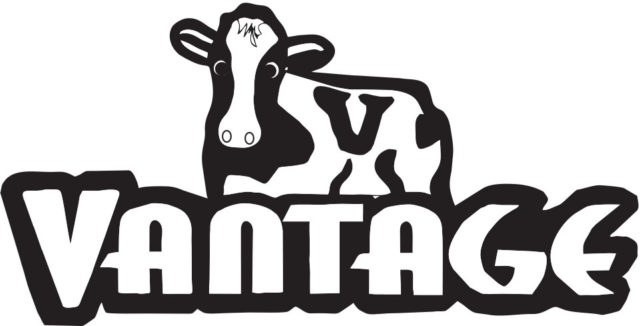The USDA has a variety of programs, loans and grants to assist those engaged in farming and livestock production. Many Idaho producers benefit from one or more of these programs. One of the most helpful, but least publicized, programs is Certified Mediation. Certified Mediation is a fully funded federal program aimed at helping producers resolve conflicts that may arise in their agricultural business. These conflicts may have to do with federal programs, family business issues or private financial transactions, among many others. Idaho has been fortunate to have offered mediation through certified state programs for more than 30 years.
In the early '90s, there were only a handful of certified states, including Idaho, participating in the program. Today, other states have seen the value, and there are now 42 states hosting USDA-certified programs. To assist and encourage producers to utilize mediation, each year Congress adopts a farm bill that allocates approximately $7 million to fully fund the Certified Mediated Program. The allocation allows for free mediation services for all eligible producer-oriented disputes. The annual farm bill lists the types of disputes which are eligible for mediation services, with the list being updated annually.
The current Idaho Certified State Mediation Program has been developed, coordinated and certified through the Fulcrum Institute Dispute Resolution Clinic since the 2009 federal calendar year. The Fulcrum organization replaced an earlier provider that was not recertified by the USDA. The certification process requires support from state officials, local USDA agency managers and a strong case record of mediation activities along with high-quality mediation evaluations and successful completion statistics.
Idaho case snapshots
The following are examples of real cases that have come to mediation and were resolved to the mutual satisfaction of all parties thanks to the Idaho Certified Mediation Program.
CRP program dispute – The producer was involved in a Conservation Resource Program (CRP) for seven years out of a 10-year contractual period. The producer became ill and was not able to complete some of the requirements of the program. The Farm Service Agency sent an adverse determination letter and requested the return of seven years of CRP payments amounting to over $150,000. A mutually agreed-upon settlement was reached through the mediation process. Payment following termination was far less.
Disaster relief – A severe winter storm resulted in the loss of livestock to an Idaho cattle rancher. Insurance was not going to pay even though the producer had lost 10 head of cattle. A successful mediation allowed the producer to recover payment for the loss.
Farm transition – A producer wanted to leave the farm to three of his six children, of whom two had gone to college and wanted to change the character of the entire farm. A five-year plan was developed in mediation related to farm ownership, new opportunities and the development of ongoing family member involvement.
Marriage dissolution and farm ownership – After 35 years of marriage, a couple faced a pending divorce. The parties met in mediation to decide how to divide the farm assets and how to allow the farm to continue within a new family structure.
Wetland protection – A producer was instructed to build an expensive bridge across a stream to specifications developed by the Army Corps of Engineers. In mediation, the design was modified to reflect the practical needs of the producer while incorporating more environmentally sound practices.
Grazing permits – Due to a changed set of circumstances, producers and the Forest Service agreed, through mediation, to modify the grazing permits to change the number of livestock permitted on the property and the exact dates of the allowable grazing.
Equipment leases – After the purchase of a much-needed new tractor, an Idaho producer went through two years of lower-than-projected farm income, making it difficult to keep up full payment on the tractor. Through mediation, the monthly payments for the lease purchase were changed for the next three years to allow the producer time to recover financially while keeping up payments and maintaining his credit.
These samples are merely for illustration purposes. The mediation opportunities for producers through the State of Idaho Certified Mediation Program as offered by the national farm bill are almost limitless. Each year, the secretary or head of the Department of Agriculture provides a list of covered cases through which the grant can provide services. The following listing provides details on this year’s list of covered cases.
Covered cases involving agricultural disputes in Idaho include:
- Agricultural loans, regardless of whether the loans are made or guaranteed by the USDA or made by a third party
- USDA actions on farm and conservation programs
- Wetland determinations
- Rural water loan programs
- Grazing on national forest lands
- Pesticides
- Rural housing and business loans
- Crop insurance
- The national organic program established under the Organic Foods Production Act of 1990
- Lease issues, including land leases and equipment leases
- Family farm transition
- Farmer-neighbor disputes
- Such issues as the secretary of agriculture or the head of the USDA considers appropriate for better serving the agricultural community and persons eligible for mediation
- Credit counseling to covered persons prior to the initiation of any mediation involving the USDA or unrelated to any ongoing dispute or mediation in which the USDA is a party
Next year’s farm bill may increase the options available to producers throughout Idaho.
There is no cost to Idaho producers for the program as a first step in resolving any dispute covered through the USDA program. Again, the Idaho State Certified Mediation Program is directed by the Fulcrum Institute Dispute Resolution Clinic through Gayle Cooper at (208) 667-5325.







